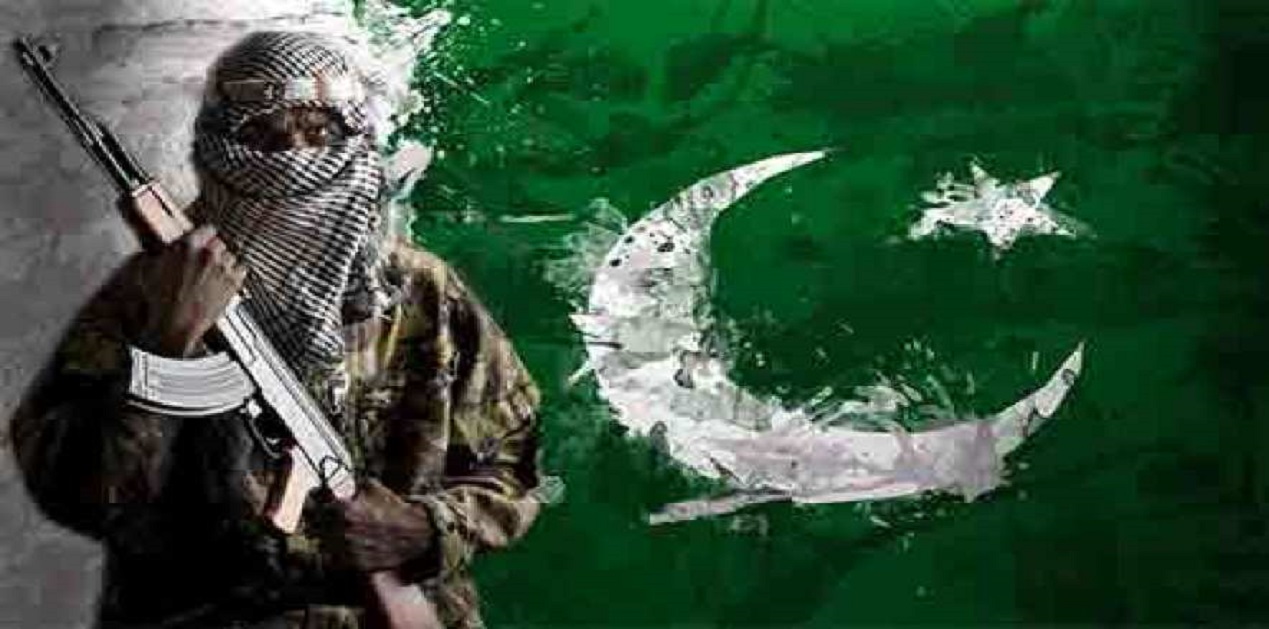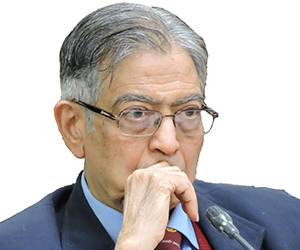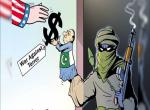The 14 February Pulwama suicide bombing resulting in the death of about 40 CRPF personnel is the latest in an incessant series of horrific Pakistan terror attacks on India starting with its 1947 action in Kashmir and inter alia including Operation Gibraltar, the insurgencies inspired by it in the North East, Punjab and later Kashmir, the 1993 Mumbai blasts, the 2001 Parliament attack, 26/11, and the 2016 attacks on the Pathankot airbase and Uri army camp.
Pakistan's remarkable consistency since its very inception in seeking to bleed India through the use of terrorism is testimony to its abiding antipathy towards the latter. Obviously, anti-Indianism is a part of Pakistan's DNA. Having failed to evolve a firmly rooted and unifying sense of identity, Pakistan has found value in anti-Indianism as a glue to hold the country together. This has metamorphosed into a search for parity with India leading it to become a security state with daunting democratic and development deficits. The Pakistani Establishment, with its strong military core, has consistently promoted the demonization of India as a means to perpetuate itself in power, to justify high levels of defence spending, and to maintain national unity. In these circumstances, no matter what concessions India makes Pakistan will persist with its machinations against it. Indeed, Parvez Musharraf in a speech in Karachi in April 1999 admitted that even if the Kashmir issue was resolved problems with India would persist.
India's default policy of engagement with Pakistan, spiced on occasion with outright appeasement, has neither mitigated the latter's hostility to India nor induced it to desist from the use of terror against India. Accordingly, a reorientation of India's Pakistan policy is called for. A more pro-active and sustained approach designed to impose costs on Pakistan for its use of terrorism as an instrument of foreign policy against us would be more appropriate in deterring it from so doing.
The case for persisting with India's soft policy towards Pakistan rests on rather specious arguments. It is, for instance, made out that since we cannot choose our neighbours there is no option but to mend fences with Pakistan. This line of argumentation is intrinsically flawed as it takes two to mend fences and given Pakistan's anti-Indian mindset no amount of accommodation by India will lead to an amelioration in the relationship. If the generosity shown by India at Shimla and in the Indus Waters Treaty did not help, nothing can. In much the same vein it is argued that dialogue is the instrument of choice in foreign policy and ultimately leads to normalisation of relations particularly if such dialogue is uninterruptible. This argument cannot be applied to India-Pakistan relations since the latter views the former as an existential enemy.
It is also argued that dialogue redounds to India's benefit as it strengthens the hands of democratic elements and of civil society in Pakistan vis-a-vis the military. This is not valid as the shots on India-Pakistan relations are, in the final analysis, always called by the Army. Moreover, the perceptions of democratic forces and of civil society in Pakistan on India largely mirror those of the Army given the extent to which they have been brain washed over the years. Here it may be relevant to recall that the Mumbai attacks of 1993 and 2008 took place under the watch of civilian governments in Pakistan as did Kargil and more recently Pulwama.
Some favour the continuance of our present policy as they fear that adoption of policies designed to impose costs on Pakistan may trigger a nuclear conflict. Such fears are unwarranted as adoption of policies designed to impose costs on Pakistan can be tailored to be at levels which would not trigger the use of nuclear weapons. In any case, since India is a nuclear armed state, this will deter Pakistan from using nuclear weapons against us.
The Prime Minister's statement following the Pulwama attack indicates that India is on track to adopt a policy of imposing costs on Pakistan. It is also apparent from it that there will be a military component to our response. Ideally, the military response should have come in a matter of hours as such a Pakistani terrorist attack was always on the cards and we should have built the appropriate automaticity into our riposte. Each day of delay in meting out punishment will adversely affect the government's and the nation's credibility.
It is also apparent from the withdrawal of Most Favoured Nation (MFN) treatment of Pakistan and from the frenetic diplomatic activity underway that the Government intends to adopt a suite of policies directed at imposing costs on Pakistan. This is only appropriate as a military riposte alone will not cause Pakistan to give up on its use of terror against India. It is to be hoped that the package of measures devised representing a whole of government response to impose costs on Pakistan is not a short-term exercise and will be pursued in a sustained and concerted manner in the coming months and even years until such time as the latter is brought to heel.
The following could be some elements of a comprehensive and multipronged approach calculated to impose costs on Pakistan for its inimical moves against us:-
- A vigorous diplomatic campaign to project Pakistan as a terrorist state and a call for imposition of international sanctions against it including suspension of military and economic assistance. In order to carry conviction with the international community this move should be accompanied by an ordinance later made into an act of Parliament declaring Pakistan as a terrorist state, and breaking diplomatic relations with Pakistan which will entail the closure of our mission there and the Pakistani mission in India.
- India should exercise full rights over the Indus waters as legally permitted under the Indus Waters Treaty. The release of Indus waters to Pakistan should be minimized by maximizing the use in India of these waters as permitted under the Treaty. Building of storages as permitted under the Treaty should be accelerated in Kashmir. A notice should immediately be served on Pakistan for suspension of the Treaty citing Article 62 of the Vienna Convention on the Law of Treaties which provides for the same in the event of a fundamental of change of circumstances under which the Treaty was concluded. The fundamental change here is Pakistan's reprehensible behaviour as demonstrated by its export of terror and complete absence of any display of goodwill, friendship and cooperative spirit on the basis of which the Treaty is predicated.
- Pakistan’s fault lines must be ruthlessly exploited in Baluchistan, Khyber Pakhtunkwa, and Sindh. The human rights violations committed by Pakistan in these areas as well as in Pakistan Occupied Kashmir (PoK) must be given widespread publicity including at international fora. We should provide asylum to disaffected elements from Pakistan within the framework of a broader asylum policy to be framed by us.
- Covert action, and if need focused strikes should be undertaken to take out terrorist elements and their supporters in Pakistan. Contingency plans for such action should be developed expeditiously so that following any further Pakistan sponsored terrorist actions against us these can be automatically triggered within a matter of hours.
- Rather than pro-actively providing comfort to Pakistan's economic development we should take punitive steps. Apart from withdrawing the unilateral accord of MFN status to it, we must prevail upon the European Union (EU) to no longer provide duty free access to Pakistani textile exports which they had earlier given with our consent. We should also take steps designed to hurt Pakistan's already fragile economy like undercutting its rice and textile exports, withdrawing from the Turkmenistan–Afghanistan–Pakistan–India (TAPI) Pipeline, calling on the Financial Action Task Force (FATF) to place Pakistan on its black list, using our influence in the International Monetary Fund (IMF) to stall financial support to Pakistan, and opposing any assistance to Pakistan by international and regional financial institutions like the World Bank, Asian Development Bank (ADB), and the Asian Infrastructure Investment Bank (AIIB).
- India should disavow the Durand Line.
- India should coordinate actions with Afghanistan and Iran vis-a-vis Pakistan as these two countries are also the victims of the latter's terror factories.
However, these moves in themselves will not be enough as long as China continues to shield Pakistan in its promotion of terror against us and as long as it along with Saudi Arabia and the UAE continue to provide it with economic support. We, therefore, also need to recalibrate our policies vis-a-vis these countries leveraging our economic strength and playing the Islamic card.
To China, we need to unambiguously make known that its continued blocking the declaration of Masood Azhar’s as a global terrorist and its failure to condemn Pakistan for the Pulwama attack will be regarded as an unfriendly act and will inevitably have an adverse impact on Chinese exports to India. Indeed, the terrorism ordinance should explicitly provide that companies engaged in business with Pakistan will not be able to do business in India except on a specific Cabinet Committee on Security (CCS) waiver to be provided in exceptional circumstances patterned on US Presidential waivers. Additionally, we should play upon the persecution of the Uighurs in Sinkiang in order to discomfit China and tarnish Pakistan's image in the Islamic world for its failure to take up the cause of the former. While Turkey is the only Islamic country to have voiced unhappiness about China's draconian actions in this regard, we need to prevail upon others like Saudi Arabia and the UAE to do likewise and indeed take up their cause in the Organisation of Islamic Cooperation (OIC). Possibly, we can work in tandem with the USA to persuade Saudi Arabia to take a more activist position in the matter.
Finally, we need to try and persuade Saudi Arabia and the UAE not to engage in the bail outs of the magnitude that they have undertaken vis-a-vis Pakistan until such time that it remains an exporter of terror. We should, like with China, make known to them as well that if they do so, their business in India could take a hit given the popular sentiment against Pakistan.
(Amb Satish Chandra, a former Foreign Secretary and Deputy National Security Advisor, is a member of VIF Executive Committee)
Image Source: https://i2.wp.com/defenceupdate.in/wp-content/uploads/2017/02/pakistan-terror-state.jpg?w=500&ssl=1











Post new comment